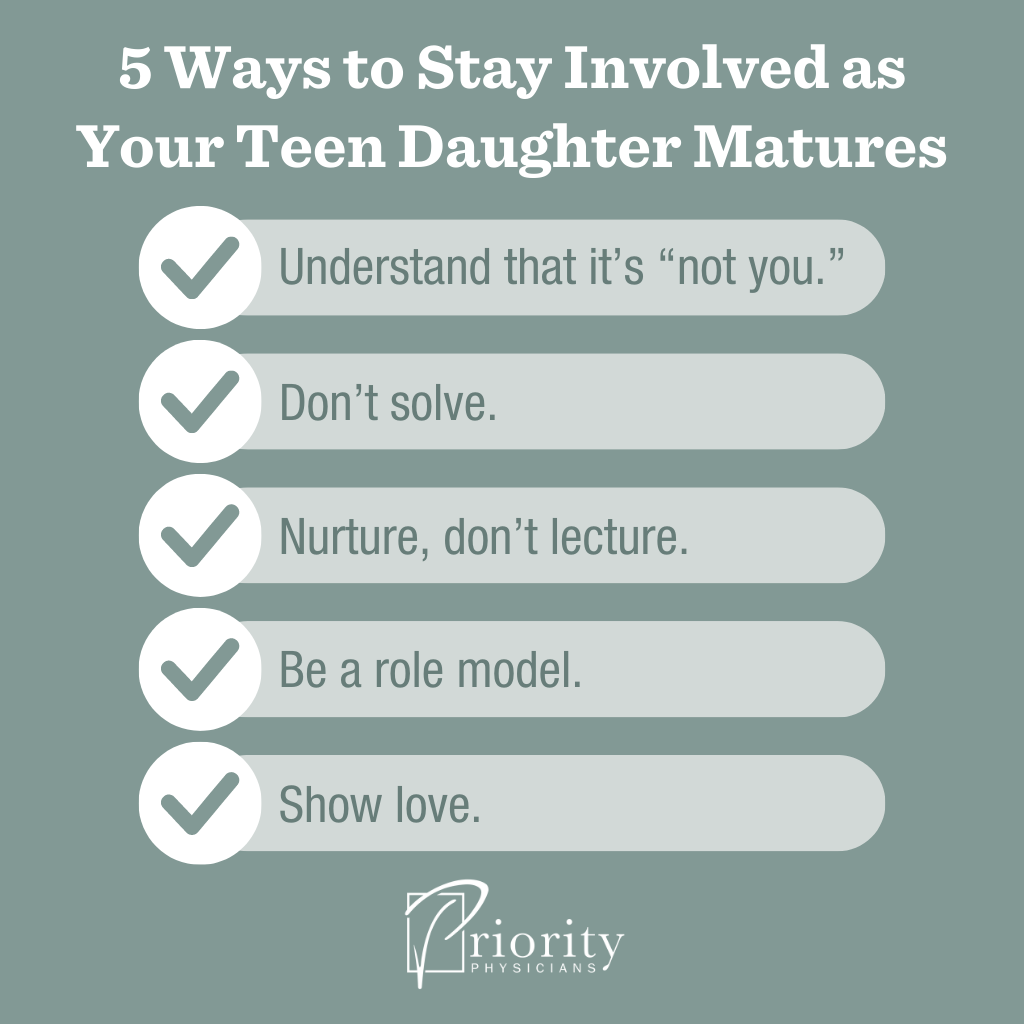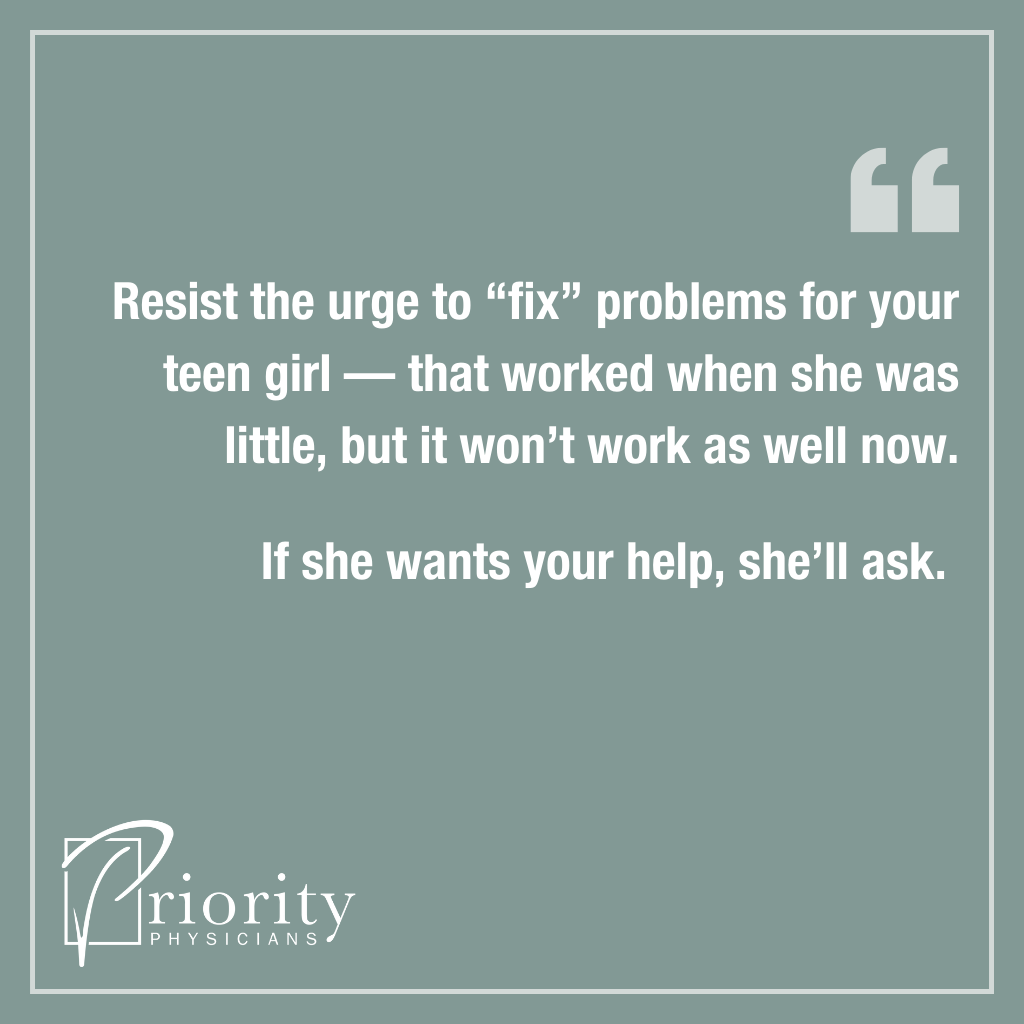Are you the father of a teenage daughter? How’s that going?
If you’re like a lot of dads, maybe you’re not so sure.
When your daughter was younger, your relationship felt natural. You shuttled her to soccer and out for ice cream afterwards. You shared popcorn as you watched TV together. When you asked how school went that day, she actually told you.
Then, around age 11, 12, or 13, she switched from slumber parties and Barbie dolls to crushing on Harry Styles and trying not to eat more than 1,000 calories a day. She responds to your questions with one-word answers and eye-rolling. And suddenly, there’s drama.
Who is this teenage girl living in your home? Your teen daughter’s “new attitude” can be bewildering, especially when you recall simpler times with her earlier self.
Cracking the Code
All adolescents (girls and boys ages 10–19) are in an exceptional place. Between childhood and adulthood, our kids experience swift, near-constant growth.
When it comes to deciphering the behavior of adolescent girls, I admit I have an advantage. As a physician, I’ve got a bit more insight than many dads into the changes heterosexual female children (who identify as female) experience at this stage of life. Plus, I have four daughters of my own, aged 12–18.
Simply put, I’m practiced at figuring out what makes teen girls tick. And I’ve become better equipped to maintain a good, resilient relationship with them.
Let’s walk through what happens as our daughters mature. Then, we’ll consider five simple ways to keep your “father-daughter” relationship on an even keel throughout her teen years.
What’s This Sudden Distance Between You and Your Daughter?
As your daughter turns 12 or 13 (sometimes even younger), things are already shifting within her body. She’s experiencing an intricate mix of hormonal, physical, physiological, emotional, and cognitive changes.
It’s not surprising that such a complex transformation affects how she feels, how she makes decisions, and how she interacts with her world (including you, Dad!).
- Hormonal and physical changes: Typically, around age 11–13, your daughter’s monthly cycle begins, and breast development and other physical changes accelerate. As a result, your teen daughter is increasingly aware of her body and may suddenly pay greater attention to style and fashion. Her desire to be more attractive — to “dress to impress” — becomes pronounced. And if she feels dissatisfied with her body, she may struggle with shame and show signs of insecurity or depression.Also, around age 14 or 15, you may notice your daughter becoming romantically (or sexually) inclined toward a boy who was originally “just a friend.” This mark of maturity can shock many dads.
- Physiological changes: All humans’ ability to sense and think can be greatly affected by hormonal changes. With the onset of puberty, your daughter’s brain is activated in new and different ways. And because physical changes happen faster than emotional and cognitive development, her emotions may need time to catch up.Indeed, your teenage daughter is trying to figure out “who she is.” And yes, “who she is” might change from day to day. She may appear strong-willed or independent about an idea on a particular day; the next day, not so much. Things she liked last month may suddenly bring her to tears, while things she once disliked are now her preferences.She’s constantly processing new thoughts, outlooks, and concepts we adults are already accustomed to. Her new, more mature persona is forming.

5 Ways to Stay Involved as Your Teen Daughter Matures
Below are five essential ways to stay engaged and involved with your daughter as she navigates adolescence:
- Understand that it’s “not you.” Your teen is experiencing a wide range of changes right now. Don’t take it personally if her only interaction with you involves arguing, complaining, or venting — she may be expressing emotions she stifled all day but feels safe releasing with you. Though some interactions with your teen girl may be challenging, I can pretty much guarantee: she doesn’t actually hate you.
- Don’t solve. Be there to guide and to listen, patiently and consistently. As my four girls mature, I’ve consciously shifted away from the “overly protective Dad” role. Instead, I treat each girl in a more adult manner, act as a sounding board, and offer advice when needed.Resist the urge to “fix” problems for your teen girl — that worked when she was little, but it won’t work as well now. If she wants your help, she’ll ask. This one can be tough for a dad, as men are natural fixers. But often, it’s more beneficial to let her figure things out for herself, or to have her realize that many “problems” are actually just temporary glitches. Be there with support, of course, when she does make mistakes.
- Nurture, don’t lecture. Rather than critiquing my daughters’ choices or trying to change their opinions, I encourage healthy dialogue. Regardless of how strongly you disagree with your teen’s actions or views, work to ensure positive interactions with her. Resist issuing mandates. And avoid communicating with her through someone else (usually Mom).(Never ignore real safety issues, of course. I still trust my fatherly instincts to warn my daughters about risky situations or questionable people. Don’t worry — you’ll know when a serious red flag is called for.)
- Be a role model. Your relationship with the mother of your daughter should exemplify the loving and respectful relationship you hope your daughter will find with the man (or woman) she chooses.Also, avoid referring to women in sexist or otherwise derogatory ways, even jokingly — you want your daughter to know you believe in her strength and ability to succeed in life.
- Show love. Not least of all, find ways to let your daughter know how important she is to you. Showing love — verbally, with a note, or with a kiss or hug — will strengthen her self-worth and identity.

The Takeaway
It’s not unusual for a dad to feel disengaged from his teen daughter’s life.
Your daughter’s evolution may feel more like a revolution, as her feelings and attitudes about everything and everyone change from day to day.
Embrace that change. Acknowledge the fact that your role as a protector is changing. Listen to your teen. Empathize. Don’t try to “fix.” Show appreciation and support.
As your family grows and develops, your Priority Physicians are always ready to listen and advise. Feel free to reach out to our family at any time.

